

Prof Angela Tincani
Professor Angela Tincani is a senior consultant (previously director) at the Rheumatology and Clinical Immunology Unit of Aziende Socio Sanitaria Territoriali (ASST)-Spedali Civili and University of Brescia, Italy.
Professor Tincani has been involved in several international committees for education and research in the field of systemic autoimmune diseases. Professor Tincani’s primary clinical and research interests include the use of anti-rheumatic drugs in pregnant and lactating patients and the management of pregnancy in rheumatic disease patients, in addition to evaluating autoantibodies and autoimmune diseases as risk factors for poor gestational outcomes. She served as an expert for several European Alliance of Associations for Rheumatology (EULAR) recommendations, including “Points to consider for use of anti-rheumatic drugs before pregnancy and during pregnancy and lactation”. Together with Professor Andreoli, Professor Tincani is co-principal investigator of the “Italian Registry of Pregnancy in Rheumatic Diseases”.
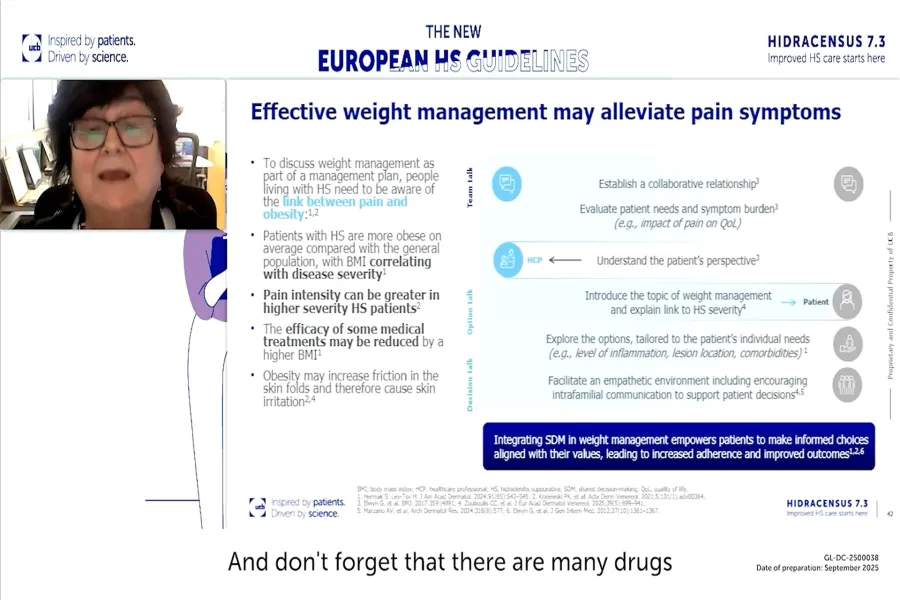
Exploring how the guidelines defines holistic care
Integrating holistic care through guideline recommendations with patient-reported outcomes and shared decision-making
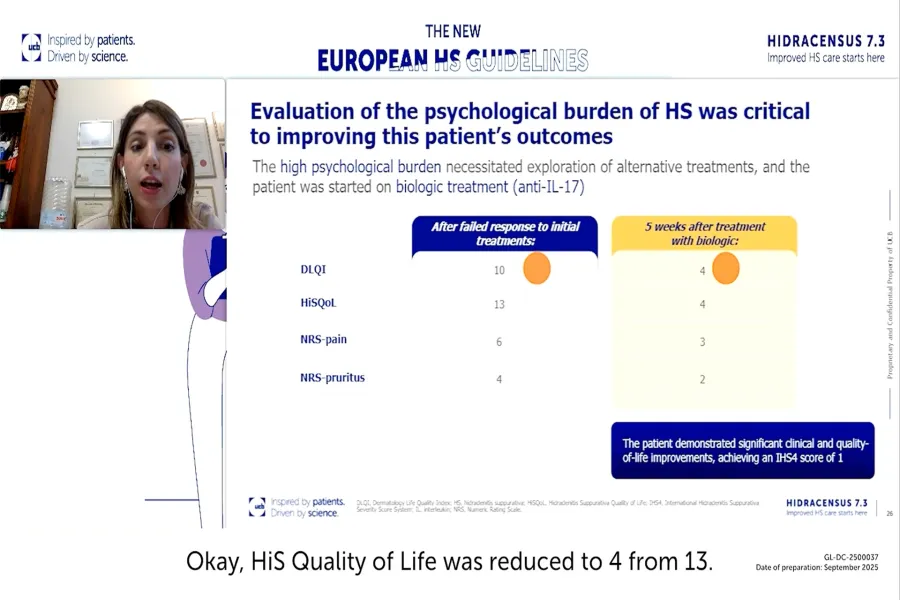
Personalising the approach to HS care
Personalised HS care: Addressing the multi-faceted burden of HS with a case study example
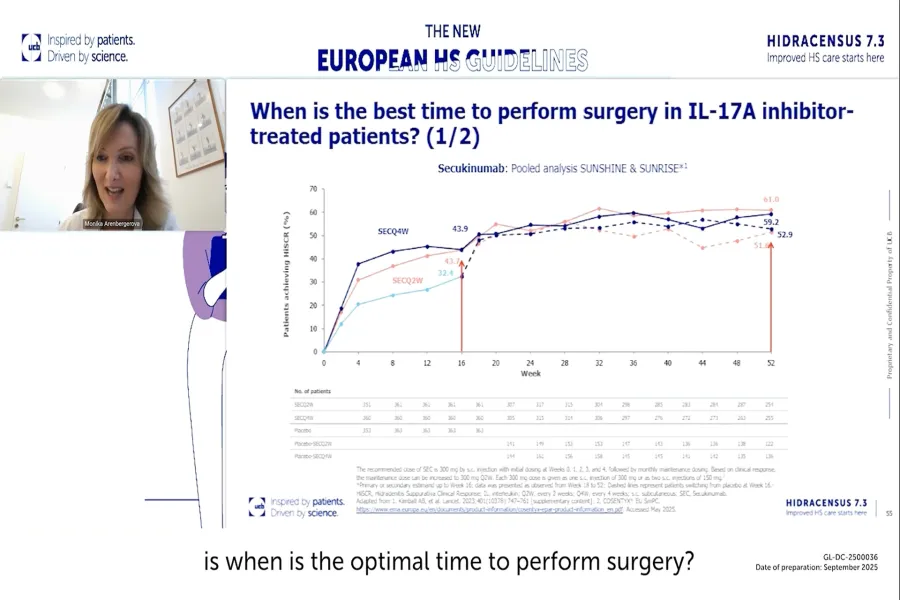
Combination approaches in HS
The role of combined medical/surgical and medical-only treatments, including the optimal time for intervention
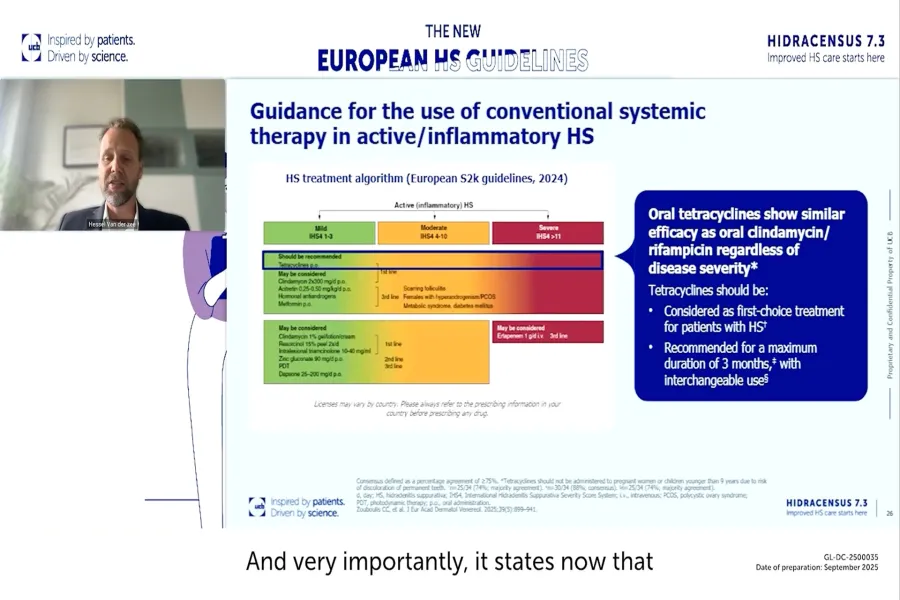
An overview of the European S2k guidelines
Key guideline updates including management algorithms for inflammatory and non-inflammatory HS phenotypes
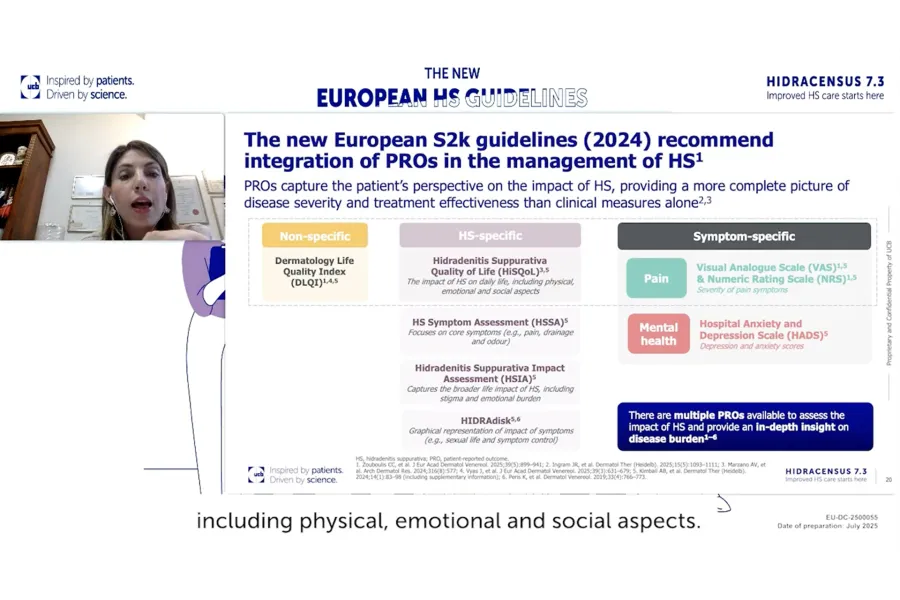
Shared decisions: Redefining HS treatment
Prof. Prignano and Prof. Liakou discuss patient-reported outcomes, shared decision-making and multidisciplinary HS care
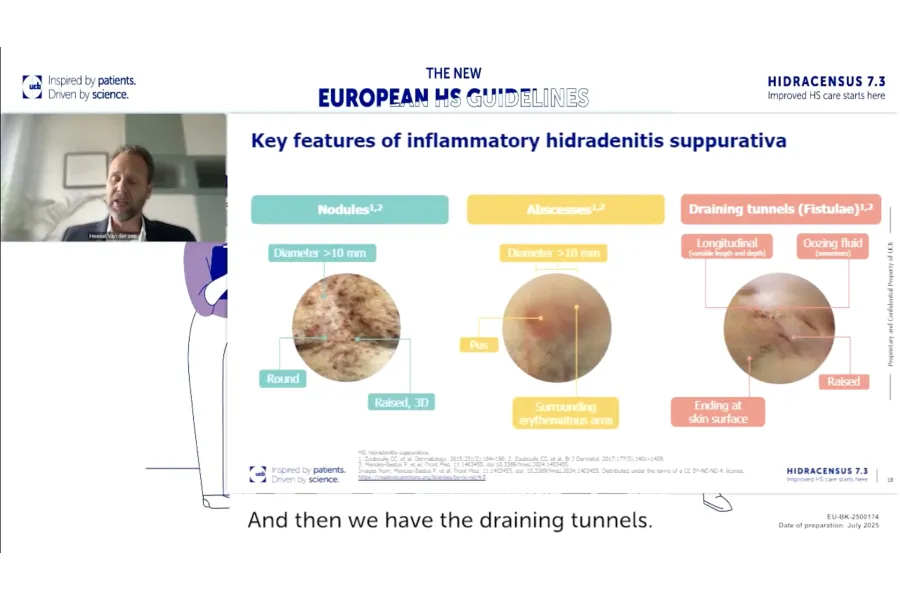
From guidelines to action: Transforming HS treatment pathways
Dr van der Zee and Prof. Arenbergerová explore holistic treatment of HS through medical, surgical and combined approaches